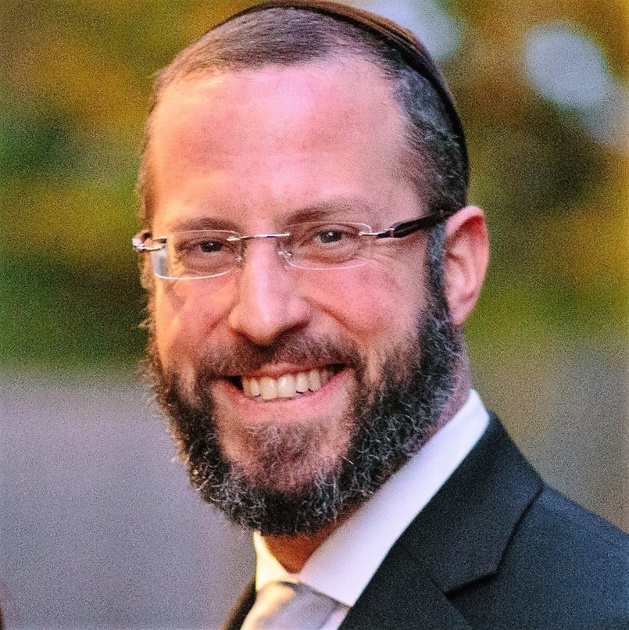
Do you ever study Torah alone?
Rabbi Joseph B. Soloveitchik (known to his students as "the Rav") once eloquently described his experience studying and teaching Talmud:
"I start the shiur (lesson), I don't know what the conclusion will be. Whenever I start the shiur, the door opens, another old man walks in and sits down. He is older than I am. All the talmidim (students) call me the Rav, he is older than the Rav. He is the great, the grandfather of the Rav; his name is Reb Chaim Brisker (the innovator of an analytical approach to Talmud study). And without whom no shiur can be delivered nowadays. Then, the door opens quietly again and another old man comes in, he is older than Reb Chaim, he lived in the 17th century. What’s his name? Shabsai Kohen - the famous Shach - who must be present when dinei mamonos (financial rulings) are being discussed; when we study Bava Metziah, Bava Kamah (parts of the Talmud). And then, more visitors show up. Some lived, some of the visitors lived in the 11th century, some in the 12th century, some in the 13th century, some lived in antiquity- Rebbe Akiva, Rashi, Rabbeinu Tam, the Ra'avad, the Rashba, more and more come in, come in, come in. Of course, what do I do? I introduce them to my pupils and the dialogue commences. The Rambam says something, the Ra'avad disagrees; and sometimes he's very nasty. Very sharp, harsh language he uses against the Rambam. A boy jumps up to defend the Rambam against the Ra'avad, and the boy is fresh - you know how young boys are fresh - so the language he uses is improper, he uses improper language. So, I correct him. And another jumps up with a new idea; the Rashba smiles gently. I try to analyze what the young boy meant, another boy intervenes, we call upon the Rabbeinu Tam to express his opinion, and suddenly a symposium of generations comes into existence."
Those stirring and expressive words describe Rabbi Soloveitchik’s passionate experience studying and teaching Torah (full audio and transcript available here). When you open a volume to study, do you experience his depicted euphoria of linking the generations in spiritual fulfillment? Perhaps there are also other people that enter your room. Maybe there are unnoticed or unwelcome visitors that are more silent than the ones described by Rabbi Soloveitchik. Yet, you are desperately trying to satisfy and please them. Perhaps your father walks in, sternly instructing you in an inaudible declaration that you have heard since youth. “You must study,” he declares. “It is an obligation. It is important to me.” Maybe one of your rebbeim enters. He might remind you of the approach he conveyed to you implicitly and explicitly - that your life is of little religious value unless you study much Torah. Perhaps you hear the sound of a shul rav you have encountered, imploring you to keep the identity of “b’emes a yungerman un nebach a shtikel baalabus – truthfully a man studying Torah full time, but unfortunately a bit of a working man.” Perhaps all these voices enter with you, or perhaps other voices of negativity are there instead.
These voices that can drown out, obscure, or even silence the intrinsic motivation, passion, and love of Torah that also might be driving you to learn. You might find it easier to ignore them. But those voices might be very real – silently screaming louder than the personalities described by Rabbi Soloveitchik. If a Torah learner tries to hear and pay attention to the multiple voices that talk to him when he opens a Gemara, he might also be able to be more in touch with a part of him that might truly desire an interaction with the Divine.
Hearing the voices that accompany one’s Torah study will also affect how portrays his feelings about Torah study to his family. This is illustrated by a unique blessing recited every morning on Torah study. Unlike most brachos, the bracha on Torah contains a special request of G-d, “Please make the words of Your Torah pleasant in our mouths and in the mouths of the people of Israel, and it will be that we, and our children, and the children of Israel will study Torah for its own sake.” Rashi (the foremost medieval Talmud commentator, Brachos 11b) explains that the extra request expresses a desire that our Torah study be with passion, fondness, and love for Torah.
It is no coincidence that we request that the words of Torah become pleasing to us and our people, and then request that the next generation study Torah for its own sake. The way children develop a passion for studying Torah is by their parents modeling pleasantness they find in Torah study. If a child sees his father relishing the time he spends devoted to Torah learning, the child might be encouraged to follow his example. Yet, the more inaudible voices that the father is trying to please, the less he might feel enthusiasm and delight in own his study (even if he convinces himself that he is).
There are usually many sounds one hears as the pages of a sefer (religious book) rustle. Some might create a wonderful symphony. Others might be create an unsettling cacophony. Perhaps some need to be silenced. But first, all the voices need to be heard - for one’s own Torah learning, and for that of one’s progeny.
Find this post and more like it at my blog, ShmuelMaybruch.com
 Previous
Previous

